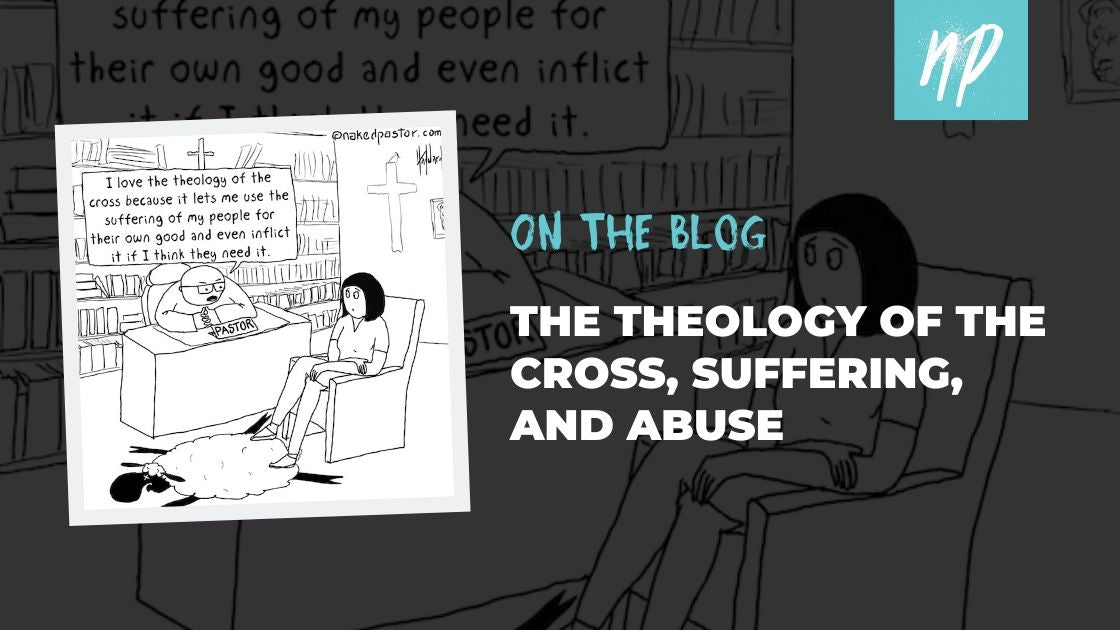I made an image that said, “I am better for my sufferings. I am better than my sufferings.” Some responded that we should be careful to not glorify suffering. I agree with that.
What comes first: the abuse or the theology? Does an abuser gravitate towards a theology that permits and inflicts suffering? Or does a theology inspire abuse in abusers? I suggest it’s a vicious circle where an abuser and a theology develop a symbiotic relationship that feeds off each other and their victims, creating a cycle of spiritual abuse.

In this cartoon, we see a pastor who considers himself God’s hand to execute God’s will upon the people. Mix this with an arsenal of scriptures that elevate suffering to divine will and we’ve got trouble.
Scriptures? Yes! Let’s consider one victim group: children.
We know that children suffer abuse in the church. But the bible often depicts children as dispensable sacrifices to the greater good. Abraham will sacrifice Isaac to satisfy God. An angel kills Egypt’s first-born sons to provoke the release of God’s people. Lot throws his daughters to rapists to protect his guests. God sacrifices his own son to save the world. Etcetera.
Could these biblical ideas create a culture of disregard for the safety of the life of our children in deference to the life of the church and the protection of its leadership?
Add the passages commending pain and suffering, discipline and punishment, marginalization and rejection, and death and dying for the greater good, as well as a church willing to employ these ideas, and there’s your culture of abuse and religious trauma. So, when it comes to suffering, we flatly refuse to encourage it, inflict it, glorify it, or use it as a means to manipulate others to fulfill an agenda.

